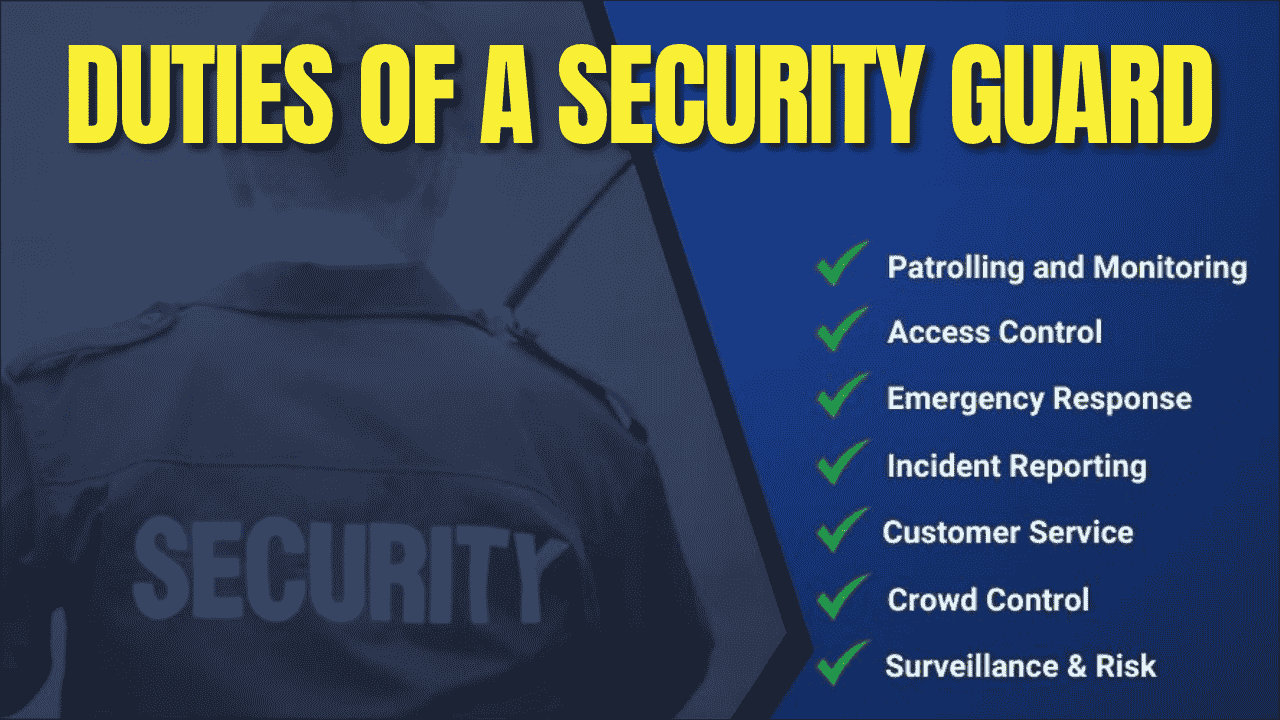
Security service providers face many risks while protecting people, property, and sensitive information. Proper insurance coverage helps protect these companies from financial losses, legal troubles, and operational disruptions. Insurance is not just a business requirement—it is a legal and professional necessity. It also gives confidence to clients that the service provider is responsible and prepared.
Table of Contents
Basic Insurance Needs for Security Service Providers
Public Liability Insurance
- Coverage Purpose: Protects against claims for injury or property damage caused by guards during duty.
- Why It Matters: A guard may accidentally harm a third party or damage property during work. This insurance covers legal and compensation costs.
- Who Needs It: All companies, especially those working in public areas or with high-risk clients.
Employers’ Liability Insurance
- Coverage Purpose: Covers legal costs and compensation if an employee is injured or becomes ill because of work.
- Why It Matters: Guards work in risky conditions. Injuries during duty can result in costly legal battles.
- Who Needs It: All firms with hired staff, including part-time or temporary guards.
Professional Indemnity Insurance
- Coverage Purpose: Covers legal fees if a client claims loss due to poor advice, errors, or negligence.
- Why It Matters: Mistakes in security planning or advice may cause client losses or harm.
- Who Needs It: Firms offering security consultancy or risk assessment services.
Commercial Vehicle Insurance
- Coverage Purpose: Covers vehicles used for business purposes in case of accidents, theft, or damage.
- Why It Matters: Guards may use company vehicles for patrolling or transporting equipment.
- Who Needs It: Firms with any vehicles used for work.
Property Insurance
- Coverage Purpose: Protects offices, equipment, and facilities from fire, theft, or natural disasters.
- Why It Matters: Surveillance systems, uniforms, radios, and other gear can be expensive.
- Who Needs It: All security providers with physical offices or storage spaces.
Fidelity Bond or Employee Dishonesty Insurance
- Coverage Purpose: Covers theft or dishonest acts committed by employees.
- Why It Matters: Security guards often handle valuable items or sensitive information.
- Who Needs It: Firms that provide guards to banks, jewelry stores, data centers, etc.
Key Insurance Types and Their Benefits
| Insurance Type | Purpose | Main Benefit |
|---|---|---|
| Public Liability | Covers third-party injury/property damage | Protects the company from legal claims |
| Employers’ Liability | Covers employee injuries or illnesses at work | Ensures worker safety and legal compliance |
| Professional Indemnity | Covers losses from poor advice or mistakes | Builds trust and reduces legal risk |
| Commercial Vehicle | Protects company vehicles used for business | Minimizes transport-related losses |
| Property Insurance | Protects buildings and physical assets | Prevents downtime after disasters or theft |
| Fidelity Bond | Covers theft by employees | Maintains client trust and secures client relationships |
Specialised Insurance Options for High-Risk Operations
Terrorism Insurance
- Purpose: Covers losses from terror-related events.
- Importance: Some firms protect government buildings or critical infrastructure.
- Clients Requiring It: Airports, embassies, and defence contractors.
Cyber Liability Insurance
- Purpose: Covers data breaches, cyberattacks, and digital theft.
- Importance: Security firms now manage surveillance software and digital systems.
- Clients Requiring It: Data centers, banks, and tech firms.
Weapons Liability Insurance
- Purpose: Covers legal issues caused by firearms or other weapons used by guards.
- Importance: Armed guards pose a greater risk, and misuse of weapons can lead to lawsuits.
- Clients Requiring It: High-security zones or VIP protection services.
Special Insurance Types for High-Risk Services
| Insurance Type | Purpose | Who Needs It |
|---|---|---|
| Terrorism Insurance | Covers damage from terror-related incidents | Guards at sensitive or government sites |
| Cyber Liability | Covers losses from cyberattacks or hacking | Firms managing tech-based security systems |
| Weapons Liability | Covers misuse or accidents involving firearms | Armed security teams |
Legal and Regulatory Considerations
Licensing Requirements
- Regulatory Compliance: Some countries or states require proof of certain insurance before licensing.
- Business Impact: No insurance means no license, leading to legal closure or fines.
Contractual Obligations
- Client Contracts: Many contracts demand specific insurance types before beginning a project.
- Industry Standards: Failing to meet insurance standards may result in losing bids or clients.
Employee Union Rules
- Labor Agreements: Security staff unions may require certain insurance for member safety.
- Workplace Safety: Insurance shows that the company values worker health and safety.
Legal Compliance and Insurance
| Requirement | Linked Insurance | Impact on Business |
|---|---|---|
| Licensing | Public liability, employers’ | Allows operation and meets legal obligations |
| Client Contracts | Indemnity, vehicle, fidelity | Helps win and retain clients |
| Union Agreements | Employers’ liability | Ensures good relationships with the workforce |
Benefits of Insurance for Security Service Providers
Business Continuity
- Insurance protects against sudden financial shocks after accidents or lawsuits.
Reputation and Client Trust
- Proper coverage shows clients that the firm is prepared and responsible.
Risk Management
- Insurance helps companies manage various risks—legal, operational, and financial.
Staff Retention
- Covered employees feel safer and more valued, improving loyalty and job satisfaction.
How to Choose the Right Insurance
Risk Assessment
- Study company operations to identify risks: location, guard duties, and client type.
Policy Comparison
- Check premiums, coverage limits, exclusions, and claim process across providers.
Consult an Insurance Broker
- Professionals can guide security firms in selecting suitable and affordable policies.
Review Regularly
- Update insurance based on changes in company size, services, or location.
Insurance Selection Tips
| Step | Action to Take |
|---|---|
| Risk Assessment | Identify key risks in security operations |
| Policy Comparison | Evaluate costs and benefits of different policies |
| Broker Consultation | Get expert help to avoid missing critical coverage |
| Regular Review | Update policies as the company grows |
Final Thoughts
Insurance is a vital part of running a security service business. It protects the company, employees, and clients from potential losses and builds a foundation of trust. Having the right insurance not only ensures legal compliance but also gives a strong competitive edge in the market. A well-insured security firm shows it is serious about safety, responsibility, and professionalism.





